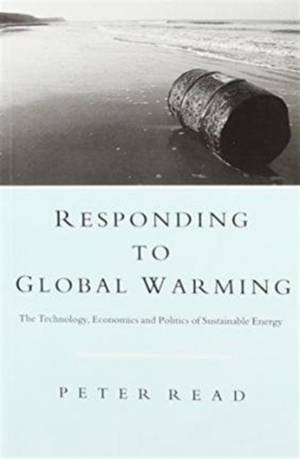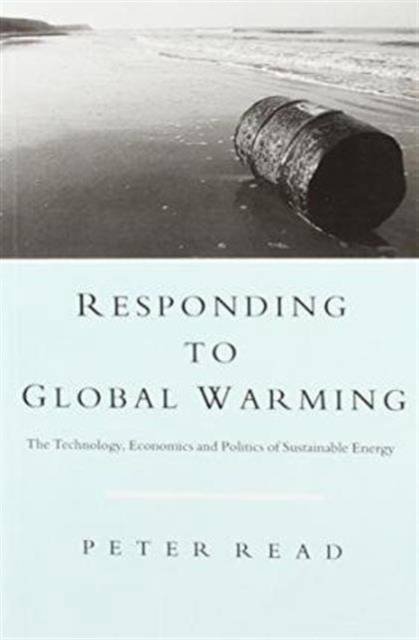
- Retrait gratuit dans votre magasin Club
- 7.000.000 titres dans notre catalogue
- Payer en toute sécurité
- Toujours un magasin près de chez vous
- Retrait gratuit dans votre magasin Club
- 7.000.0000 titres dans notre catalogue
- Payer en toute sécurité
- Toujours un magasin près de chez vous
Responding to Global Warming
The Technology, Economics and Politics of Sustainable Energy
Peter Read
Livre broché | Anglais
46,45 €
+ 92 points
Description
With the Framework Convention on Climate Change, action to prevent possible global warming is on the agenda. But the obtacles appear daunting. Peter Read argues that the problem can be tackled, however, at a much more affordable cost than commonly realized, and in ways likely both to provide incentives to energy corporations and to improve the development prospects of many countries in the South.
The key lies in a multi-disciplinary policy perspective that integrates engineering, economics and decision theory. The author's highly innovative argument proposes a novel Tradeable Absorption Obligation to wean energy corporations onto sustainable fuel coupled with deploying recent biomass energy technology advances - notable new methods of intensive fuelwood production, gas turbine power generation and ethanol fermentation. This strategy opens up the prospect of controlling the level of the main global warming gas not simply by lowering CO2 emissions but by radically increasing CO2 absorption.Spécifications
Parties prenantes
- Auteur(s) :
- Editeur:
Contenu
- Nombre de pages :
- 320
- Langue:
- Anglais
Caractéristiques
- EAN:
- 9781856491624
- Date de parution :
- 01-03-94
- Format:
- Livre broché
- Format numérique:
- Trade paperback (VS)
- Dimensions :
- 143 mm x 215 mm
- Poids :
- 349 g

Les avis
Nous publions uniquement les avis qui respectent les conditions requises. Consultez nos conditions pour les avis.






